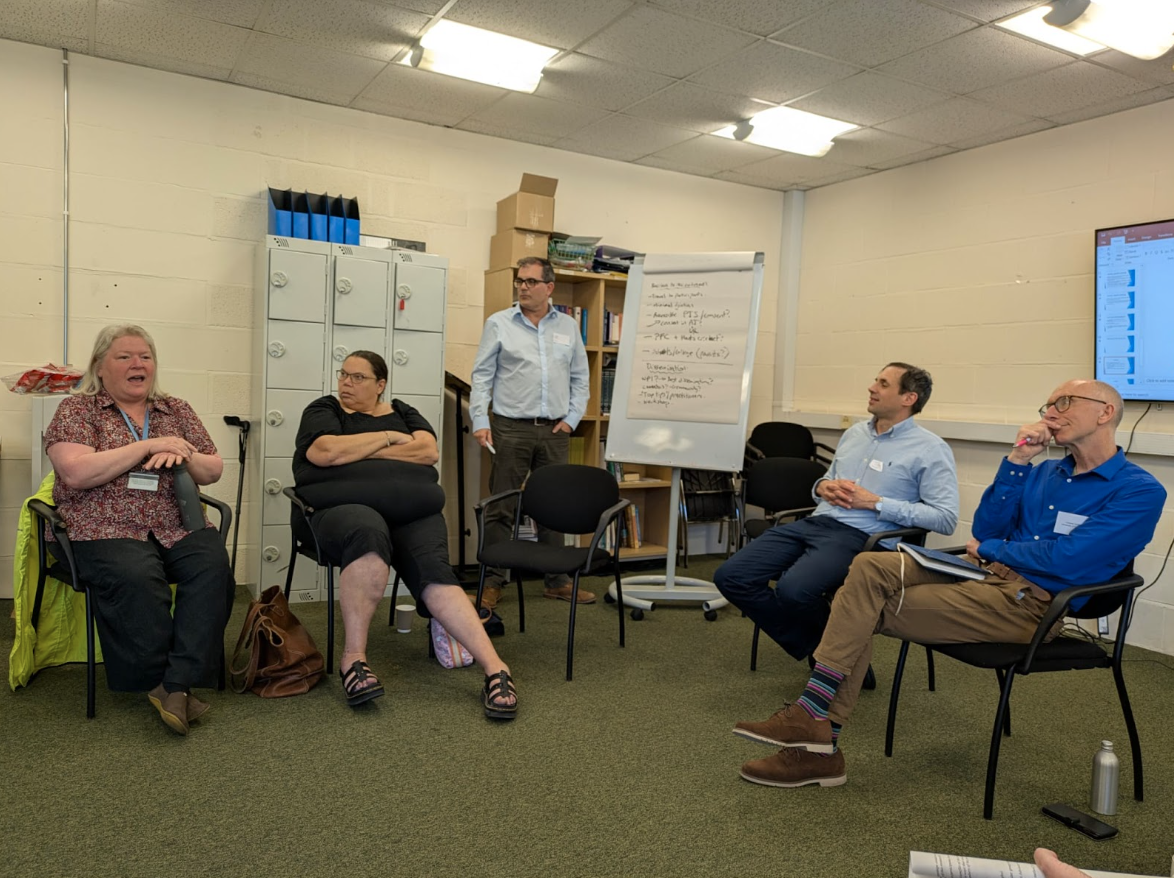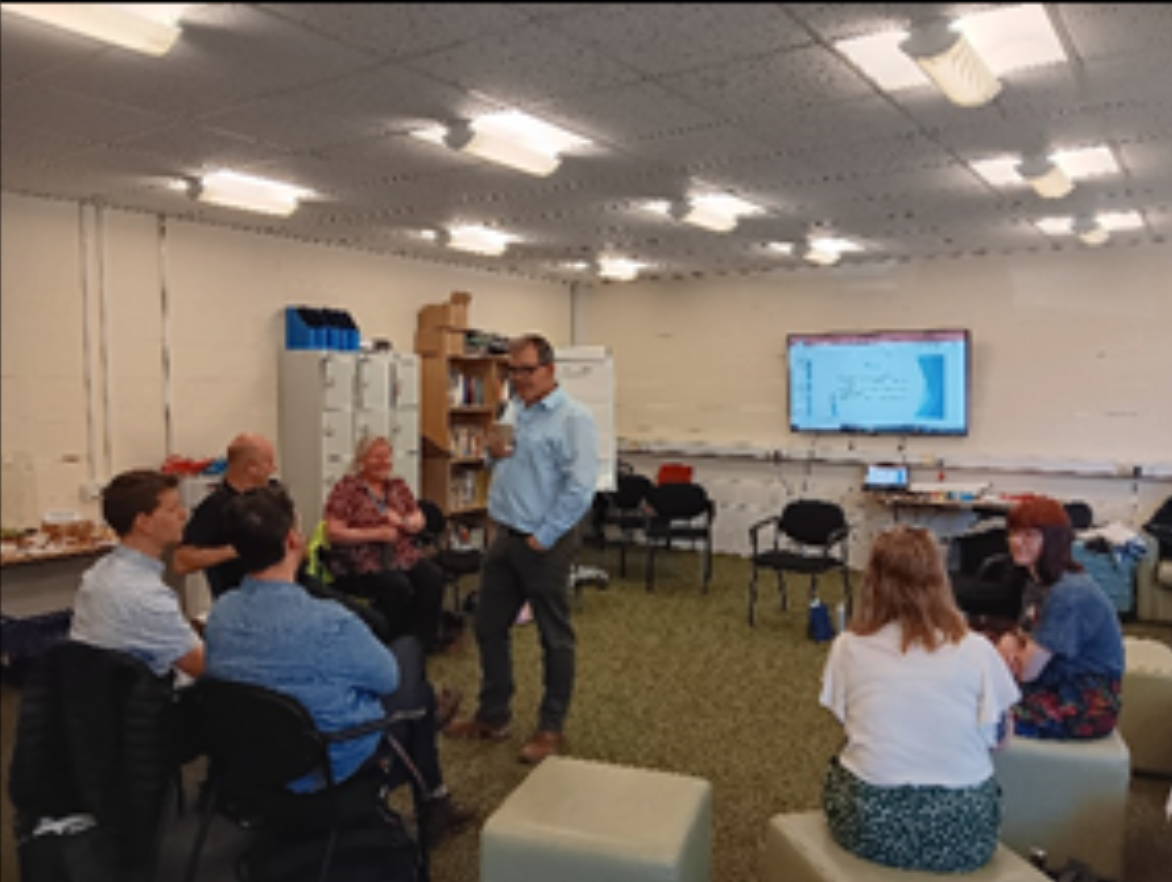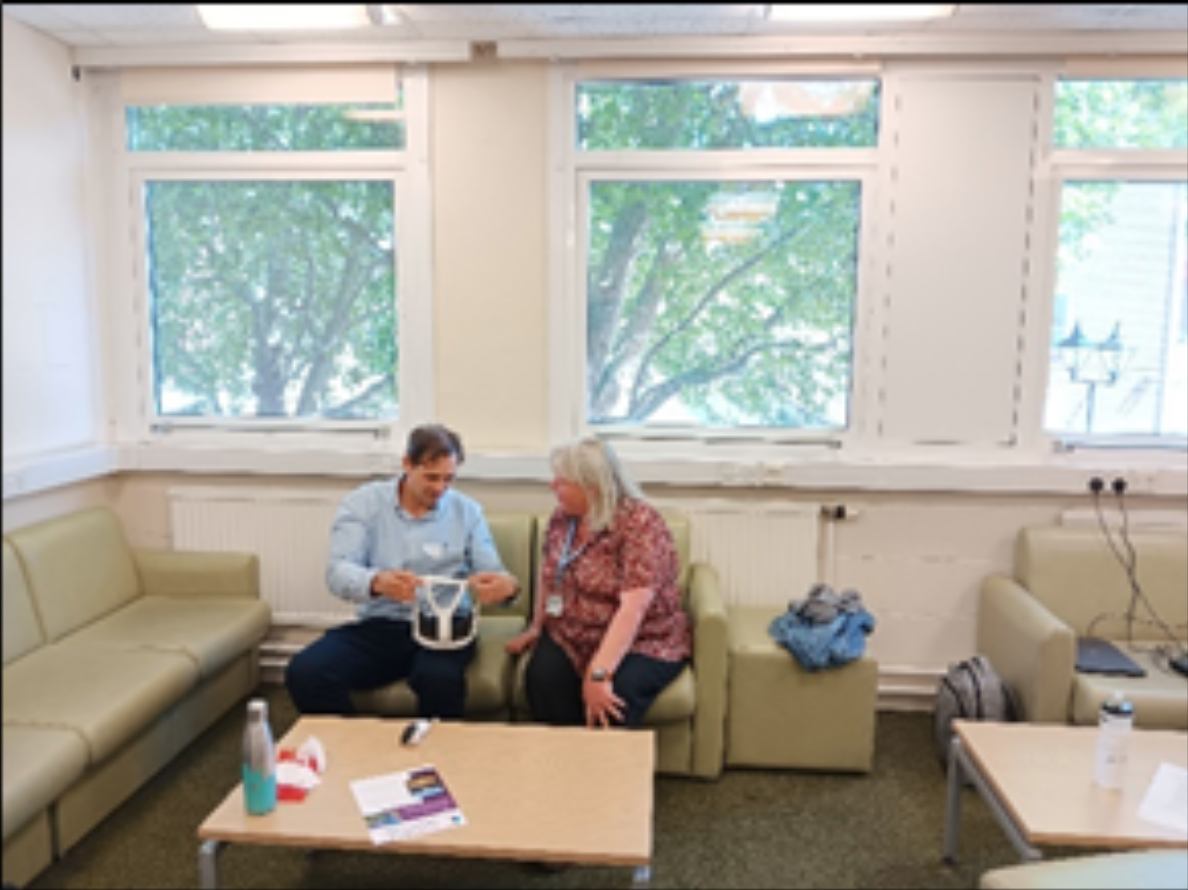Attendees:
- Lorenzo Stafford, University of Portsmouth
- Matt Parker, University of Surrey
- Jennifer Seddon, Oxford Brookes University
- Christof Lutteroth, REVEAL, University of Bath
- Emily Nicholls, University of York
- Samantha Belfrage
- Portsmouth City Council
- Justina Jeffs
- Strategy Adviser, Portsmouth City Council (Armed Forces Covenant)
- Nicole Heard
- Community Kettle
- Tom Wood (GP)
- Kirkland Surgery
- Alan Knobel
- Public Health Principal, Portsmouth City Council (Addiction Services)
- Matthew Nineham
- Portsmouth City Council (Health and Wellbeing Services)



On 16 May 2025 at Portsmouth University we brought together stakeholders from across academia, health services, and the community to explore innovative approaches to alcohol-related behaviour change using Virtual Reality (VR). Representatives from UK universities working at the intersection of health, psychology, and immersive technology joined local practitioners, community organisers, and community service providers in a wide-ranging, collaborative discussion.
This event formed part of our ongoing effort to co-create research that is relevant, inclusive, and grounded in real-world practice. Below, we share key insights and ideas that emerged across four thematic areas: Recruitment and Access, VR Design Considerations, Behaviour Change and Memory, and Broader Engagement Strategies.
1. Recruitment: Making Participation Accessible and Meaningful
Recruitment was a key theme, with a focus on breaking down barriers to participation:
- Flexible, Community-Based Engagement: Suggestions included running drop-ins at supermarkets (e.g. ASDA Fratton), food banks, and pharmacies, or engaging parents at community centres while children take part in activities. Events during weekends and evenings may also help widen access.
- Trusted Community Connectors: Partnering with community advocates such as Action Hampshire or local cafés could help build networks and trust.
- School and College Channels: Recruitment through educational institutions (with parental engagement where appropriate) and tailored materials for young people were also discussed.
- Diverse Referrals: Including self-referrals (e.g. from Veterans Outreach Support) and through local services such as Hampshire Cricket Foundation and the PFC Foundation.
- Accessibility of Information: Consent processes—particularly in studies using AI or digital methods—must be understandable, inclusive, and clearly communicated (e.g. in the Participant Information Sheet).
A repeated message was that minimising friction and offering choice in how people engage is key.
2. Virtual Reality: A Powerful Hook, If Thoughtfully Designed
VR demonstrations at the event generated lively interest. Stakeholders saw great potential in using immersive tech both as a recruitment tool and as an intervention platform. Key reflections included:
- Engagement Potential: VR was described as a “hook” — a compelling way to attract interest and start conversations about drinking behaviours.
- Realism and Safety: Participants valued how convincingly VR could simulate short-term effects of alcohol (e.g. dizziness), offering a safe yet impactful way to reflect on alcohol use.
- Design Considerations:
- Personalisation of drinks (e.g. strength, type, alcohol-free options)
- Built-in social cues (e.g. happy hour, cost)
- Privacy in choosing or consuming drinks in the VR environment
- Contextual variation: eating while drinking, timing, speed of consumption
- Stratifying responses by age, medication, or location (e.g. pub vs. home)
Framing is crucial. Unlike interventions for smoking or weight loss, alcohol reduction can be more stigmatised. Stakeholders discussed positive lifestyle messaging—focusing on control, choice, and wellbeing rather than risk or abstinence.
3. Memory, Motivation, and Behavioural Context
We explored how memory and personal experience could influence drinking. Some key reflections:
- Memory Elicitation: Memory prompts should balance reflection without inadvertently triggering desire to drink. Targeting memories of overconsumption or regret may be more constructive than general prompts.
- Personal Motivations and Context: Drinking behaviours are not uniform. Age, social setting, and personal outlook all play a role. This highlights the need for interventions to be sensitive and adaptable—some may view intoxication as enjoyable, others as regrettable.
- Medication Interactions: Some participants may be advised to reduce alcohol due to medication—this presents a unique point of engagement.
4. Methodology and Broader Relevance
The event itself modelled our mixed-methods approach, including:
- Presentations of current research
- Live VR demonstrations
- Focus group discussions
We were encouraged by the breadth of stakeholder suggestions—ranging from event-based recruitment and community-led engagement, to developing a practitioner toolkit with ‘top tips’, case studies, and web-based training. One participant summarised the ethos perfectly: “It’s not just another poster—we want something we can actually use.”
This work is highly relevant to a wide variety of stakeholders—from local councils and GPs to community services. The emphasis on early intervention, positive framing, and flexible methods reflects a shared ambition: to develop research that meets people where they are, both literally and emotionally.
5. Next Steps
Insights from this event will shape our next phase of development and co-design. We’re particularly excited to explore:
- Recruitment pilots using community rooms and event-based VR engagement
- Inclusive, responsive design for VR environments that reflect real-world settings
- Continued development of our toolkit and training materials for practitioners
We thank all attendees for their time, energy, and openness—and look forward to working together on the next steps of this important journey.
💬 Interested in working with us or knowing more? Whether you’re looking to collaborate, co-develop, license technology, or feature our work—please contact us.


